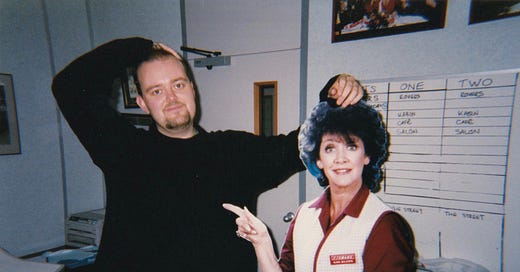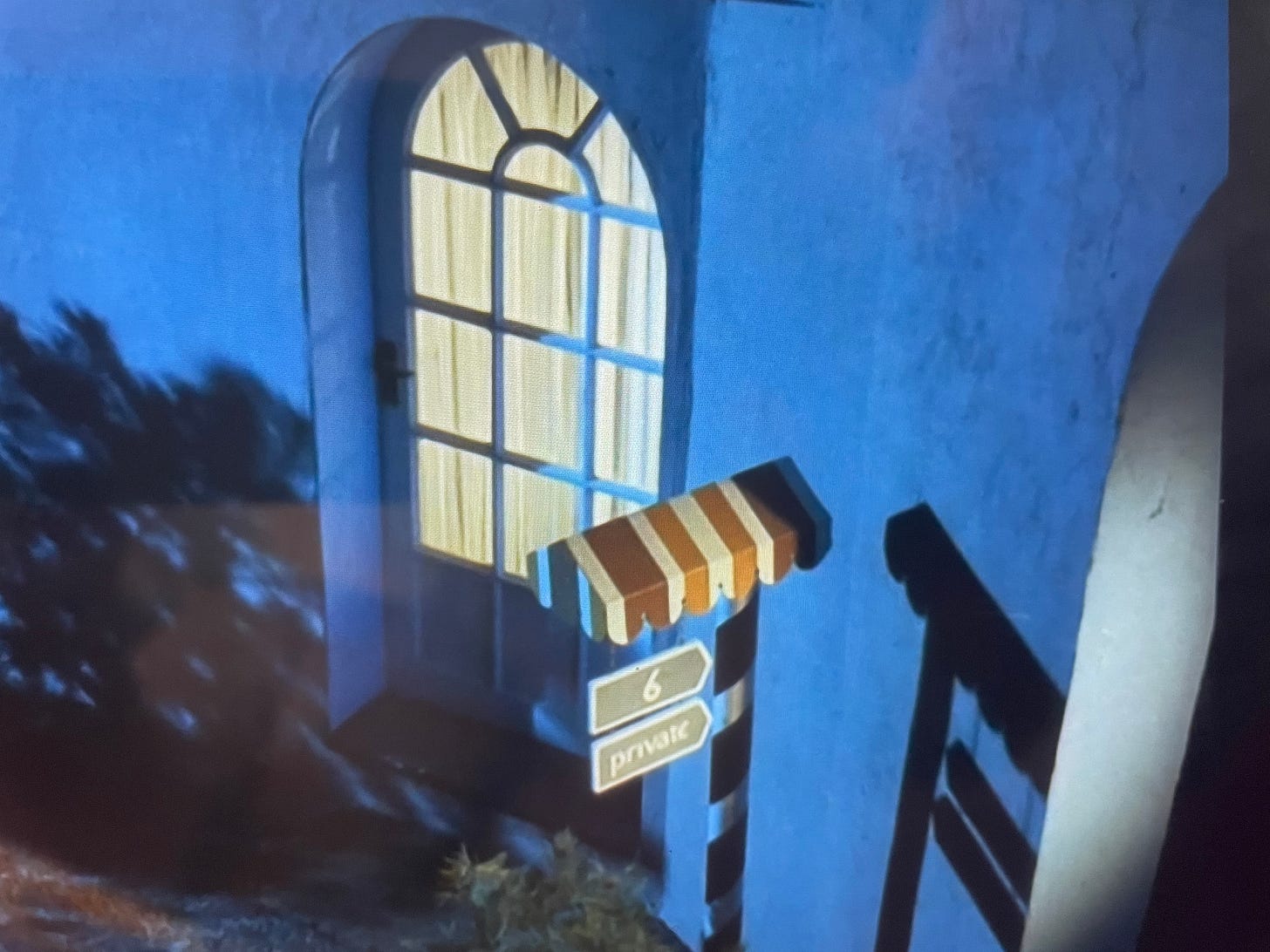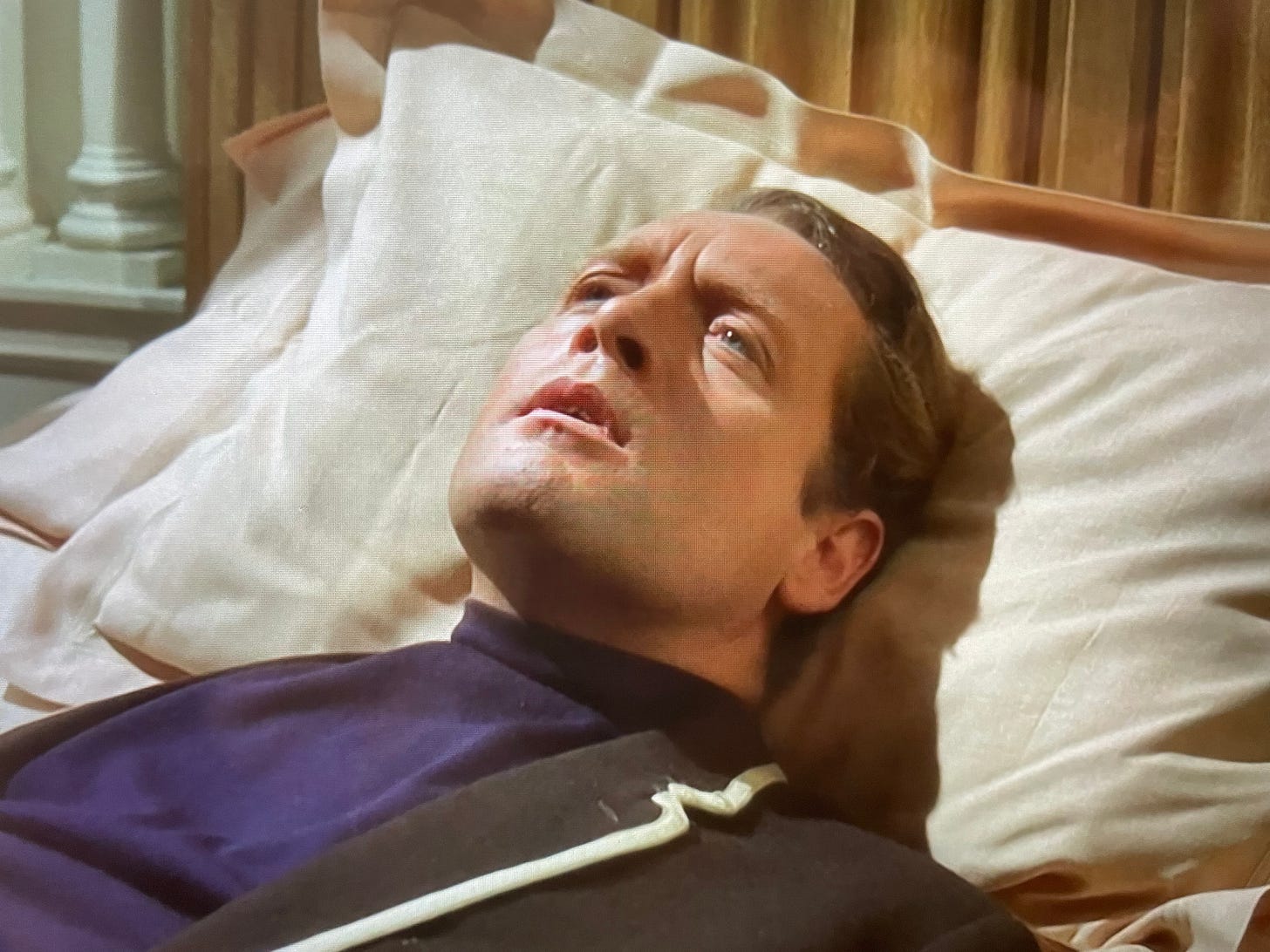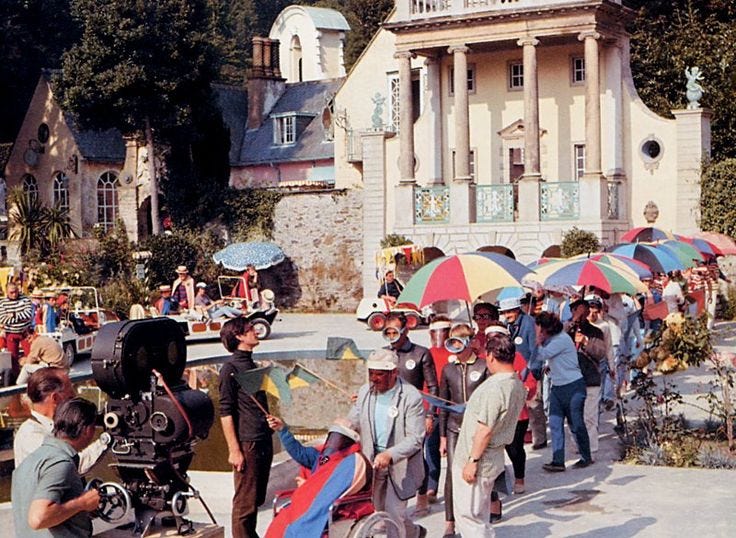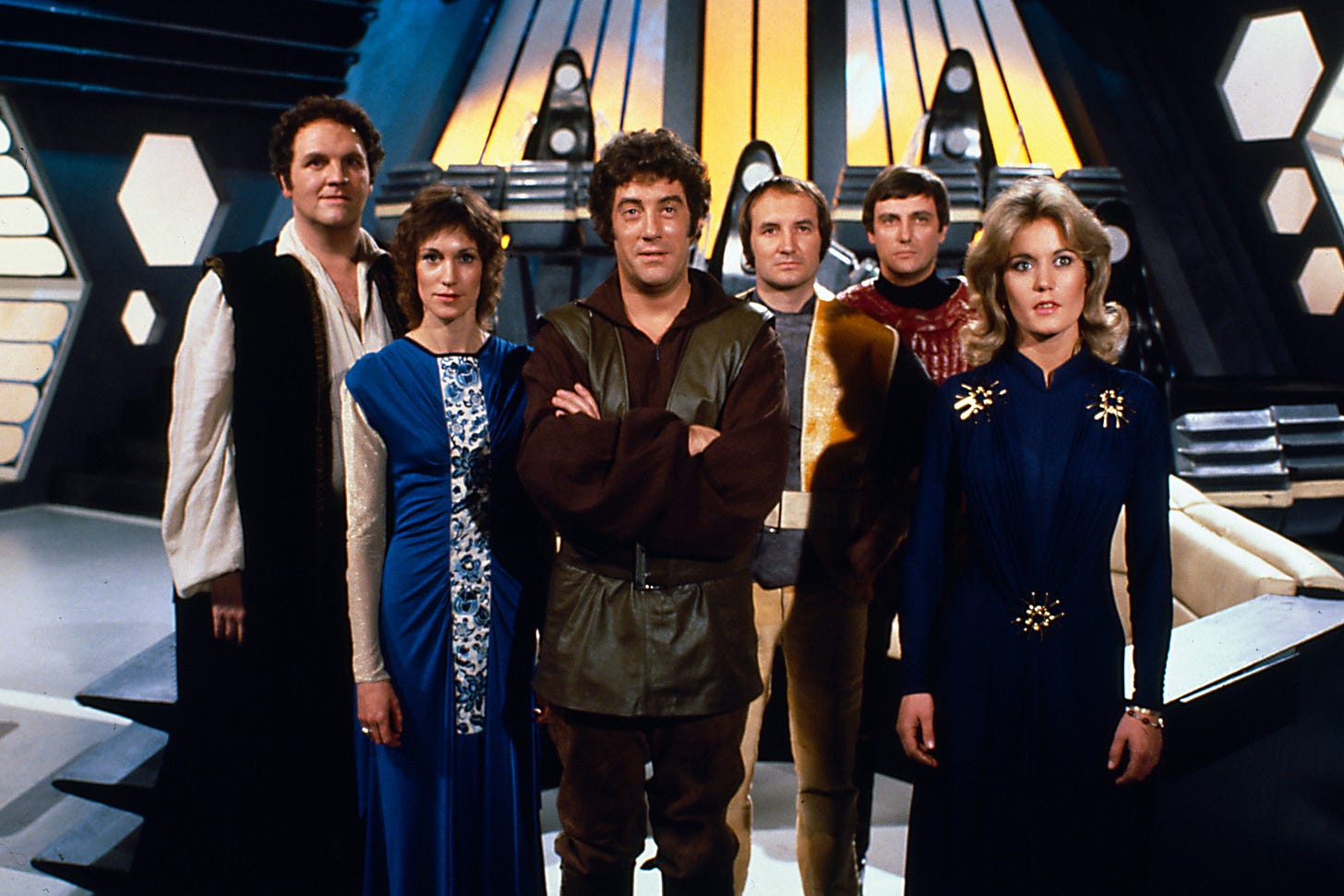This is a repository for my writing and critique across a variety of cultural subjects. At least initially I’ll be concentrating mostly on television, so here are some background thoughts on it.
Working in TV is just like any other job, in that factions form, there are rivalries and empire-building, much jockeying for status, etc. As the historian David Starkey once observed, every human endeavour of any kind, turns out like a Tudor court. Because it is the nature of human beings to jostle for position and form cliques.
But unlike most jobs, other people - non-participants - are interested in the creative workplace. The level of interest varies wildly. I can assure you that Emmerdale was, and probably still is, like The Borgias behind the scenes, but nobody much cares. With what are known as ‘cult’ TV series - despite them being designed for mass audiences - they really do. I myself am fascinated by the clash of egos and frequent disasters of 1980s Doctor Who. It is the same kind of fascination some people get from a lengthy autopsy. This juicy, gossipy stuff is hilarious and absorbing from a ringside seat distance. When you’re in the ring, with your own emotions involved, it is much less so.
I won’t be delving too much into that angle, though sometimes it might be necessary. But I think above and beyond any skills I may or not have as a writer, twenty five years in the TV business does give me a distinct critical perspective.
As I worked in TV a lot of things about TV suddenly became clear to me. One of the first was that apparently little details loom large. Here’s an example.
At the beginning of Act 4 of The Prisoner episode ‘The Schizoid Man’ there’s an establishing shot of the lead character’s cottage. We then cut inside - except we don’t, because he’s actually in a totally different building, and we cut there instead. (This confusion from the film editor likely arose because the episode is about a double of the character.)
I thought that was just a fleeting little error, although I noticed it the first time I saw it on Channel 4 in 1983. But no, it’s a big mistake, and a telling one. And hardly anybody else noticed it. When I pointed it out to fellow Prisoner devotees they couldn’t believe they’d missed it.
And it was good that I noticed it. Because noticing apparently little things is the best skill you can have in TV. (Philip Hinchcliffe I’d say was a noticer par excellence, which is one of the main reasons his work on Doctor Who has a solidity that is mostly lacking elsewhere.) Quick noticing of problems and mistakes, and - here’s the really important part - quick solving of them.
Devotees and disciples of ‘cult’ TV dive into their fictional worlds in a way hardly anybody who actually made them did. Being script editor (back in the day), or what we now call head writer in the UK and showrunner in the US, is an extremely demanding job. You are required to keep at least eight distinct time zones of your series in your head at once - storylining stage/commissioning stage/first drafts/second drafts/further rewrites/prep/production/post-production.
British TV is certainly not financially equipped to run like that, putting all of that on one person, but we do it anyway. You just don’t have time to think very deeply about what you’re doing when your series is in production. You’re dealing with all sorts of issues as they arise. And, if you’re any good, you’re noticing and solving.
But I think it’s enormous fun to examine these things afterwards, and do a lot of noticing.
This is not a ‘how to’ guide. The media world has changed utterly since my imperial phase, and not for the better. Popular TV is now riddled with people who hate TV, hate their viewers, and see it as their purpose to take it over and lecture and berate anyone still tuning in. Surprisingly, viewers don’t like that. Also, evolving tech has changed the function and purpose of TV. It used to be a mass medium. It still could and should be. But tech, combined with the horrible ideology that pervades culture now, has hastened its demise and fragmentation.
What I’ll be writing about here is too specialised to fit into normal TV publications, and also too outspoken for them.
There will be general observations springing from particular cases - for example, a particularly shoddy and incoherent episode of a series will lead to thinking about rewrites and reshoots. I will also sometimes digress from TV for appreciations of other cultural things, high and low, that take my fancy.
My first thoughts are two ‘cult’ series (actually huge successes) - The Prisoner and Blake’s 7. They’ve been discussed endlessly, yes. But not the way I’m going to do them.
My posting schedule should be once a week of a substantial length. The open ended nature of Substack is one of its big appeals - I won’t be working strictly to word count, and I can flit about a bit. I can’t imagine I’ll have much to say about ‘Dawn Of The Gods’, for example. It’s not great, but the reasons why are not particularly interesting. On the other hand I could write a book length critique about the godawful ‘Do Not Forsake Me Oh My Darling’ and every last thing that’s wrong about it, and believe me I probably will.
The novelist and Professor of English Literature John Williams was asked once in an interview, ‘Is literature written to be entertaining?’ His reply - ‘Absolutely. My God, to read without joy is stupid.’ My aim here is to reflect that kind of joy in the culture that you and I love.

